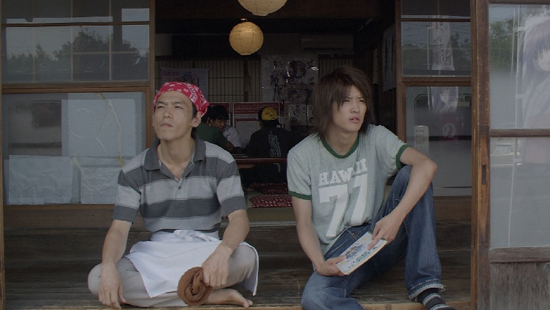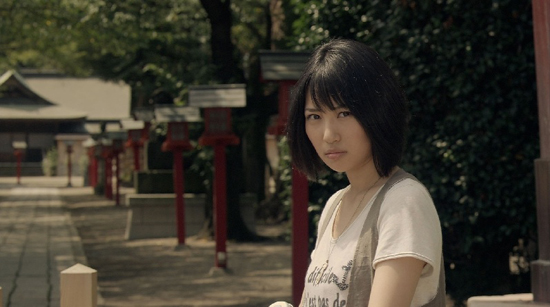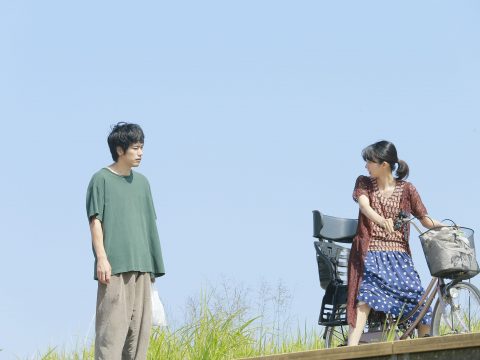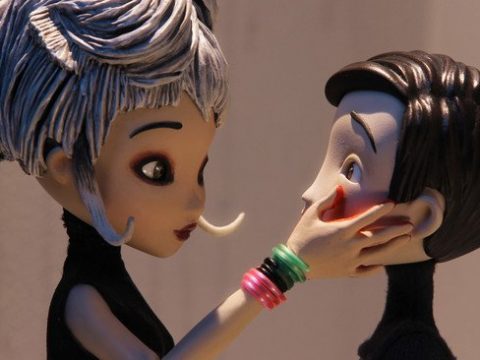
Not long ago, an article on the small town of Washimiya and its shrine was featured on this fair site. As fate would have it, the recent Skip City International D-Cinema Film Festival in Kawaguchi was holding a screening of Washimiya Monogatari (Washimiya Story), an hour-long film that skewers the transformation of the town from quiet hamlet to otaku hotspot.

Being a production with the goal to promote the town, the story frequently takes a backseat to interviews with local (mostly aging) residents. These turn out to actually be the most intriguing and moving scenes in the film. Interviews with an elderly shop owner worrying about Washimiya becoming a ghost town in 20 years or even casual establishing shots of a mostly empty kindergarten ring with more sincerity than the forced antics of Takashi and his buddies.
Kitagawa seems to have realized this too. One of the most moving, if melodramatic, scenes in the film involves the eventual premiere of the film. After long deliberation between a tokusatsu flick, the aforementioned mockumentary and an Initial D parody, the result is a goofy mecha show that features the omikoshi shrine of the town transforming into a Mazinger Z rip-off that leaves the residents utterly puzzled. In a cheeky moment of meta-commentary, the characters shrug and say, “Well, at least we got it out there.”
However, as the noise and excitement die down and the audience leaves the theater, it’s revealed that Takashi has put a little coda to his flick: a montage of exteriors of every shop in town as he solemnly reads their names, like victims in a disaster. To anyone who has walked through the streets of Washimiya in its off-season, it’s both touching and heartbreaking to see the uncertain future of this unique little town crystallized in such a fashion.
 It’s hard not to be of two minds about the film as whole. As a movie for entertainment, it is less than a sterling success. Kitagawa has obviously done his homework on otaku, but he seems to have missed Genshiken. The unfortunate result is that the characters remain without depth and are overshadowed by the cliché pandering, and even the cliché pandering is overshadowed by the agenda. Those three aren’t mutually exclusive – just look at any Michael Moore film – but Washimiya Monogatari collapses under its weight.
It’s hard not to be of two minds about the film as whole. As a movie for entertainment, it is less than a sterling success. Kitagawa has obviously done his homework on otaku, but he seems to have missed Genshiken. The unfortunate result is that the characters remain without depth and are overshadowed by the cliché pandering, and even the cliché pandering is overshadowed by the agenda. Those three aren’t mutually exclusive – just look at any Michael Moore film – but Washimiya Monogatari collapses under its weight.
Yet, it’s impossible to hate it. For all the failures, there is a certain can-do nature to the film and, for overseas fans, the peek at a Japan that is so often overlooked when it isn’t over-idealized is worth looking at whenever it hits the DVD market. Okay, maybe the shots of Ayumi Orii in a plastic superheroine skirt have something to do with it too.







